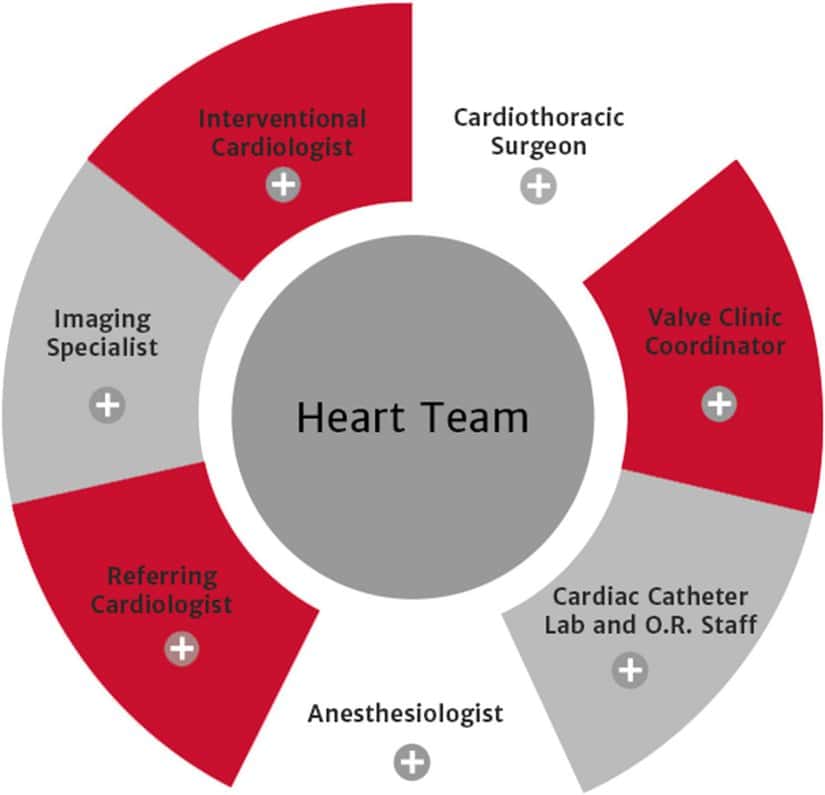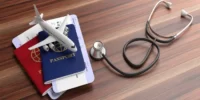Heart Surgery Tourism: Accessing World-Class Cardiac Care

Are you in need of heart surgery but struggling to find affordable options in your own country? Look no further than heart surgery tourism. By traveling to another country for your procedure, you can access world-class cardiac care at a fraction of the cost.
However, with any medical procedure, there are both benefits and risks to consider before making your decision. Choosing the right destination and researching hospitals and surgeons are crucial steps in ensuring a successful and safe procedure.
Additionally, preparing for your trip, understanding costs and payment options, and communicating with medical professionals who may speak a different language or have different cultural norms are all important factors to consider. By understanding the potential complications and follow-up care, you can make an informed decision about whether heart surgery tourism is the right choice for you.
Key Takeaways
- Researching hospitals and surgeons is crucial to find a reputable facility and medical team that the patient feels comfortable with.
- Preparing for the trip involves making travel arrangements and understanding costs, including hospital fees, surgeon fees, and other expenses.
- Communication with the medical team during treatment is important, considering language and cultural barriers, and using translation tools or interpreters if necessary.
- Follow-up care and recovery involve strict adherence to a regimen of rest, medication, and physical therapy, with potential complications and management of expectations.
Understanding Heart Surgery Tourism: Benefits and Risks
You’re probably wondering about the benefits and risks of heart surgery tourism – let’s dive in and explore together.
On the one hand, heart surgery tourism can provide access to world-class cardiac care at a fraction of the cost found in developed countries. This is particularly appealing for those who are uninsured or underinsured, or who simply can’t afford the high cost of medical procedures in their home country.
In addition, patients may have the opportunity to receive treatment from highly skilled surgeons who specialize in particular procedures, and who may not be available in their home country.
However, there are also risks associated with heart surgery tourism. Traveling to another country for medical treatment can be stressful and can increase the risk of complications. Patients may not be familiar with the local customs and language, and may not have access to the same level of aftercare as they would at home.
In addition, there’s always the risk of contracting an infection or other illness while abroad, particularly if the patient is already in a weakened state due to their medical condition.
It’s important to carefully weigh the potential benefits and risks before making a decision about heart surgery tourism.
Choosing the Right Destination for Your Procedure
Opting for the appropriate location for your procedure is crucial in ensuring a successful outcome. When choosing the right destination for your heart surgery, consider the following factors:
- Reputation: Look for hospitals with a good reputation for cardiac care. Research online reviews and testimonials from past patients to gauge the quality of the facility and the expertise of the medical staff.
- Cost: Heart surgery can be expensive, so it’s important to consider the cost of the procedure in your chosen destination. Compare prices across different hospitals and locations to find the best value for your money.
- Language: Make sure that you can communicate effectively with your medical team. If you’re not fluent in the local language, choose a hospital that provides language support services.
- Accessibility: Consider the ease of travel to and from your chosen destination. Look for hospitals that are easily accessible via direct flights and have good transportation options.
- Visa requirements: Check if you need a visa to enter your chosen destination. Make sure to secure all necessary travel documents well in advance to avoid any delays.
By taking these factors into consideration, you can choose the right destination for your heart surgery and have peace of mind knowing that you’re in capable hands.
Researching Hospitals and Surgeons
When researching hospitals and surgeons, it’s important to imagine yourself in the operating room, surrounded by a team of professionals who will guide you through every step of the process. You want to choose a hospital and surgeon that make you feel comfortable and confident in their abilities.
Look for hospitals that specialize in cardiac care and have a high success rate for the specific procedure you need. Start by researching hospitals and surgeons online. Look for reviews and testimonials from previous patients, as well as any statistics on success rates and complication rates.
Don’t be afraid to reach out to the hospital or surgeon directly and ask for more information or to schedule a consultation. Ask about the surgeon’s experience and training, as well as the hospital’s facilities and technology. With the right research, you can find a hospital and surgeon that will provide world-class care for your cardiac procedure.
Preparing for Your Trip: Travel and Accommodations
Before embarking on your journey to the hospital, it’s essential to make travel arrangements and book accommodations that are convenient for you and your family.
When it comes to travel, you want to make sure that you arrive at your destination well-rested and ready for your procedure. This means that you may need to plan for a few days of travel before your surgery date to allow for rest and acclimation to the new environment. If you’re traveling internationally, you’ll also need to make sure that you have all the necessary travel documents, including passports, visas, and any required medical certificates.
When it comes to accommodations, you’ll want to choose a place that is close to the hospital and offers the amenities and services that you need. Many hospitals have partnerships with nearby hotels and may be able to offer discounted rates. You may also want to consider booking an apartment or rental home, which can provide more space and a homier feel.
Whatever you choose, make sure that it meets your needs and that you feel comfortable and safe during your stay. By taking the time to plan your travel and accommodations, you can ensure that your experience is as stress-free and comfortable as possible.
Understanding Costs and Payment Options
It’s important to know the various payment options available to you when it comes to covering the costs of your medical procedure.
Heart surgery can be expensive, and it’s essential to have a clear understanding of the costs associated with the procedure, including hospital fees, surgeon fees, and other expenses.
You may be able to pay for your surgery with cash, credit card, or wire transfer. Some hospitals and clinics may also offer financing options or payment plans to help you manage the costs of the procedure.
Before you schedule your heart surgery, be sure to research the payment options available to you.
You may also want to consider purchasing medical travel insurance to cover unexpected expenses that may arise during your trip.
Understanding the costs and payment options for your heart surgery can help you make informed decisions about your care and ensure that you receive the best possible treatment without breaking the bank.
Communicating with Medical Professionals: Language and Cultural Barriers
Don’t let language or cultural barriers get in the way of communicating effectively with your medical team during your treatment.
It’s important to be able to ask questions, express concerns, and understand the instructions given to you during your heart surgery.
If you’re traveling to another country for your procedure, it’s likely that the medical professionals you’ll be working with will speak a different language or come from a different cultural background than you. It’s important to prepare for this ahead of time by learning some basic phrases in their language and researching their cultural customs and practices.
To ensure effective communication, consider bringing an interpreter with you or using translation tools such as apps or devices.
It’s also important to be patient and understanding during conversations with your medical team, as they may need to take extra time to explain things to you or clarify any misunderstandings.
By making an effort to bridge any language or cultural barriers, you’ll be able to work more effectively with your medical team and receive the best possible care for your heart condition.
Post-Procedure Care and Recovery
After your procedure, you’ll need to follow a strict regimen of rest, medication, and physical therapy to ensure a smooth and successful recovery. The first few days after your surgery will likely be spent in the hospital, where medical professionals will monitor your vital signs and ensure that you’re comfortable.
Once you’re discharged, you’ll need to continue your recovery at home. Here are some things to keep in mind:
- Rest is crucial during the first few weeks after your surgery. You may feel tired and weak, and this is normal. Be sure to get plenty of sleep and avoid strenuous activities.
- Take your medication as prescribed by your doctor. This may include pain medication, blood thinners, and antibiotics. Make sure you understand the instructions for each medication, including when and how to take them. Keep a record of your medication schedule to ensure that you don’t miss a dose.
- If you experience any side effects from your medication, contact your doctor immediately.
- Physical therapy will likely be a part of your recovery plan. Your doctor may recommend exercises to help you regain strength and mobility. Follow your physical therapy plan carefully and attend all scheduled appointments.
- Don’t push yourself too hard during exercise. Gradual progress is key to a successful recovery.
Managing Expectations: Potential Complications and Follow-Up Care
Managing your expectations is crucial as there may be potential complications and follow-up care needed for a smooth recovery. While heart surgery can be life-saving, it is important to understand that there is a risk of complications during and after the procedure. Some of the potential complications include bleeding, infection, and irregular heartbeat. In addition, some patients may experience side effects from anesthesia or medication.
It is important to discuss potential complications with your healthcare team and understand what steps can be taken to minimize the risk. Additionally, follow-up care is crucial for a successful recovery. This may include regular visits with your healthcare provider, medication management, and lifestyle changes such as diet and exercise. By managing your expectations and staying informed about potential complications and follow-up care, you can ensure a smooth and successful recovery.
| Complications | Symptoms | Treatment | |||
|---|---|---|---|---|---|
| Bleeding | Excessive bleeding at incision site, low blood pressure | Blood transfusion, surgical intervention | |||
| Infection | Fever, chills, redness or swelling at incision site | Antibiotics, wound care | |||
| Irregular heartbeat | Palpitations, dizziness, shortness of breath | Medication, electrical cardioversion | |||
| Side effects | Nausea, vomiting, headache, fatigue | Adjusting medication dosage, alternative medication | Complications | Depending on the specific complication, treatment may include medication, surgery, or other interventions as determined by the healthcare provider. |
Final Thoughts: Is Heart Surgery Tourism Right for You?
Deciding whether heart surgery abroad is a suitable option for you ultimately comes down to weighing the benefits and risks.
On one hand, medical tourism offers access to world-class cardiac care at a fraction of the cost of the same procedure in your home country. You may also be able to avoid long wait times for surgery and benefit from the expertise of highly trained medical professionals.
On the other hand, there are risks involved in traveling for surgery, such as language barriers and potential complications during travel. Additionally, it may be difficult to coordinate follow-up care with a doctor who is located overseas.
Ultimately, the decision to pursue heart surgery tourism should be made after carefully considering both the potential benefits and risks and consulting with your doctor to determine the best course of action for your individual situation.
Frequently Asked Questions
What are the qualifications required for a patient to be eligible for heart surgery tourism?
To be eligible for heart surgery tourism, you will need to undergo a thorough medical evaluation to ensure you are physically fit for travel and surgery. Your medical history will also be taken into consideration.
What are the legal implications of undergoing heart surgery in a foreign country?
If you undergo heart surgery in a foreign country, you may face legal implications. It’s important to research the laws and regulations of the country beforehand and consult with legal professionals to ensure your rights and safety.
How can patients ensure that the medical facilities they choose are equipped with the latest technology and equipment?
Make sure to research the medical facilities thoroughly. Check if they have the latest equipment and technology. Ask for references and reviews from previous patients. Be cautious and don’t rush into anything.
Are there any additional post-surgery complications that could arise due to cultural differences or travel-related stress?
Travel-related stress and cultural differences may cause additional post-surgery complications, such as infection or a delay in recovery. It’s important to do your research and plan accordingly to minimize these risks.
How can patients ensure that they receive proper post-operative care and follow-up treatment after returning to their home country?
To ensure proper post-operative care and follow-up treatment after returning home, communicate with your healthcare provider and obtain a detailed medical report. Schedule appointments and adhere to medication and rehabilitation guidelines provided by your doctor.
Conclusion
So, is heart surgery tourism right for you? Ultimately, that decision will depend on your individual circumstances, preferences, and needs.
However, with proper research, planning, and communication with medical professionals, accessing world-class cardiac care can be a viable option for many people. By choosing the right destination and hospital, preparing for your trip, understanding costs and payment options, and managing expectations, you can increase your chances of a successful procedure and recovery.
It’s important to remember that heart surgery is a serious and complex medical procedure, and there are always risks involved. However, with the right support and resources, you can make an informed decision about whether heart surgery tourism is the right choice for you.
With world-class cardiac care available in many countries, it’s never been easier to access the treatment you need to improve your health and wellbeing.








